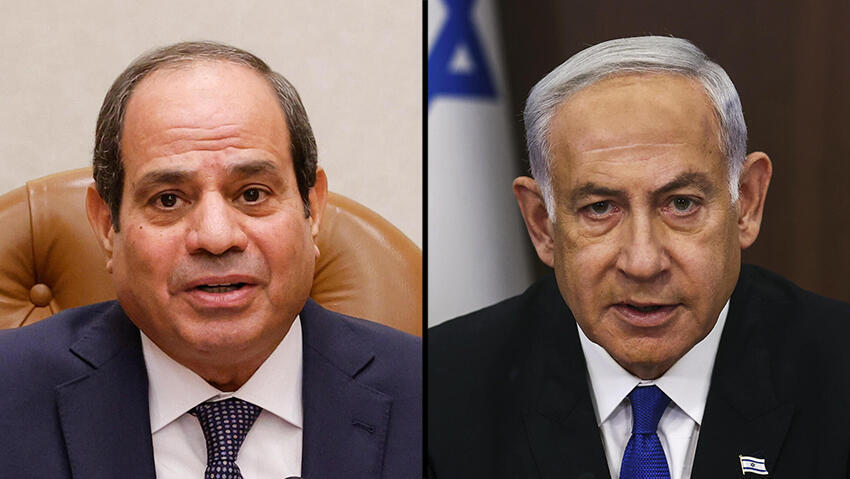The relationship between Israel and Egypt is navigating one of its most severe and challenging periods in the last 45 years. The ongoing conflict, notably Israel's calls for residents in the northern Strip to relocate southward, is viewed in Cairo (and also in Jordan) as potentially the start of a forced migration to their territories. This concern is heightened by some unofficial and careless declarations from Israeli entities encouraging Palestinians to leave the Strip for Sinai.
Read more:
Egyptian President Abdel Fattah al-Sisi expressed deep concern about the humanitarian crisis in the Strip and warned against the movement of Palestinians to Egyptian territory In an unusual move, al-Sisi departed from his prepared remarks to stress that Palestinian migration to Sinai could lead to the peninsula becoming a base against Israel, which would then see this as a justification to defend itself by attacking Egyptian land.
Al-Sisi stated that Egypt is committed to peace, but also issued repeated warnings against such a move: "In Egypt, there are 105 million people, and if I ask them to oppose this idea, millions of Egyptians will come out against the pushing of Palestinians from the Strip" He also cautioned that if Palestinians from the Strip migrate to Egypt, a similar movement might occur from the West Bank to Jordan, echoing a significant fear already publicly stated in Amman.
calls for Palestinians to leave their homes in the northern Gaza Strip have likely sparked suspicions in Egypt, a reaction that may be surprising given the recent alignment of interests between the two countries, especially since the ascent of President Abdel Fattah al-Sisi.
Statements from Israeli figures, such as Education Minister Yoav Kisch, who recently urged Palestinians to depart Gaza for Egypt, amplify these suspicions. This concern is further fueled by the ultra-nationalistic composition of the Israeli government, with figures like Ministers Bezalel Smotrich and Itamar Ben Gvir having made contentious statements (not to mention taken provocative action) in the past. Al-Sisi expressed fear that Israel might exploit the war to "solve the Palestinian problem by removing it from the Palestinian territories".
 Michael HarariPhoto: Mitvim
Michael HarariPhoto: MitvimWhat should Israel do? The government must clarify unequivocally and through discreet channels - from Prime Minister Benjamin Netanyahu, Defense Minister Yoav Gallant and Minister Benny Gantz - that Israel does not seek to push Palestinians into Egyptian territory. In Cairo, they don't necessarily interpret precisely the weight of the feather that ministers such as Kisch have. These feed conspiratorial thinking that must be interrupted with hostility, certainly under unprecedented circumstances.
The upcoming ground operation and the worsening situation on the ground will create additional challenges in Arab countries' relations with Israel. The potential harm to relations with Egypt could also have implications for other nations, particularly Jordan, which already has strained relations with the current government. It is vital to ensure that our actions are meticulously coordinated with Egypt, even if full agreement is not always possible. The alliance with Egypt is of strategic importance, and the peace agreement is a valuable asset that must be preserved.
Michael Harari held key positions in the Israeli MFA, among them: Head of the International Bureau in the Center for Political Research, Deputy Head of Policy Planning and Ambassador to Cyprus




